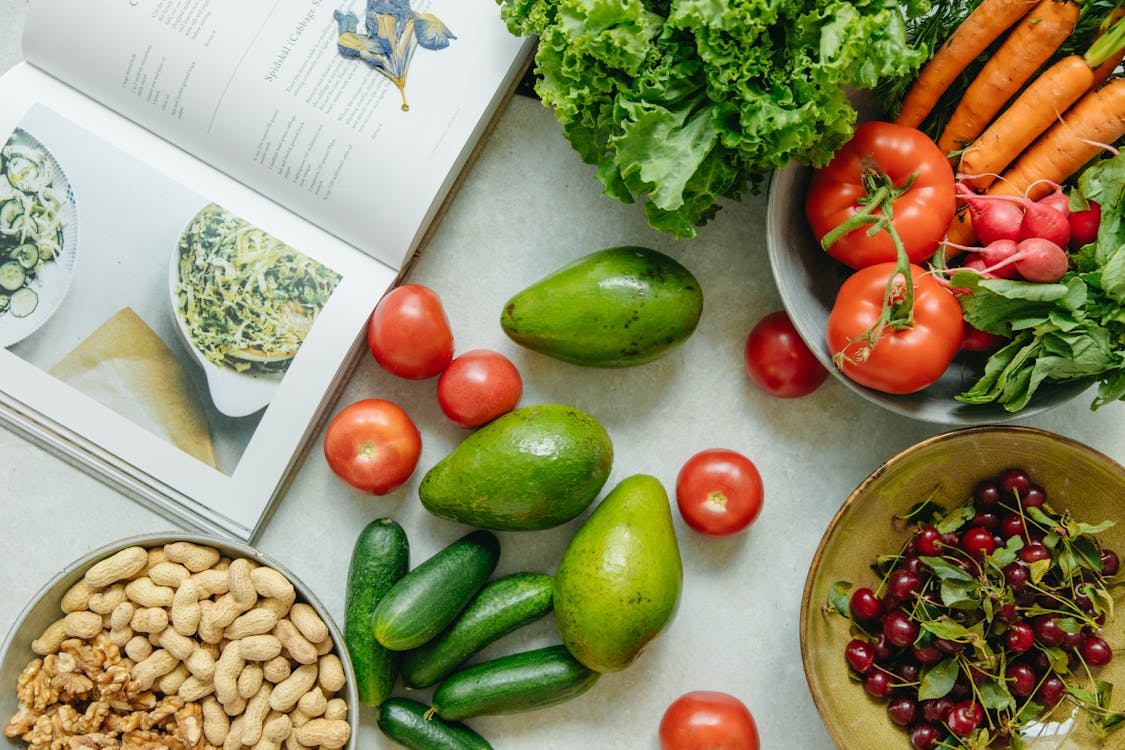
In a world where fast food and convenience meals dominate, prioritizing heart health can sometimes feel like a daunting task. However, taking care of your heart doesn’t mean sacrificing flavor or enjoyment in your meals. With the right recipes and ingredients, you can create delicious dishes that not only tantalize your taste buds but also nourish your body and support cardiovascular health.
Welcome to a journey towards better heart health through the joy of cooking! In this article, we’ll explore a variety of heart-healthy recipes designed to keep your cardiovascular system in top shape while satisfying your culinary cravings. From fresh fruits and veggies to lean proteins and wholesome grains, we’ll delve into the key components of a heart-smart diet and how you can easily incorporate them into your daily meals.
Understanding Heart Health
Before we dive into the recipes, let’s take a moment to understand why prioritizing heart health is so crucial. Your heart is the powerhouse of your body, tirelessly pumping blood and oxygen to every cell. By adopting heart-healthy habits, you can reduce your risk of cardiovascular diseases such as heart attacks and strokes, ensuring a longer and healthier life.
The Importance of Balanced Nutrition
A balanced diet forms the cornerstone of heart health. Aim to fill your plate with a colorful array of fruits, vegetables, lean proteins, whole grains, and healthy fats. This balanced approach provides essential nutrients while keeping unhealthy fats, refined sugars, and excessive sodium at bay.
Incorporating Fruits and Vegetables
Fruits and vegetables are rich in vitamins, minerals, and antioxidants that promote heart health. Incorporate a variety of colorful produce into your meals, aiming for at least five servings a day. Whether fresh, roasted, steamed, or blended into smoothies, there are countless ways to enjoy the goodness of fruits and veggies.
Choosing Lean Proteins
Opt for lean proteins such as skinless poultry, fish, tofu, beans, and legumes. These protein sources are lower in saturated fats and cholesterol compared to red meats, making them excellent choices for heart health. Get creative with your protein intake by experimenting with different cooking methods and flavor combinations.
Embracing Healthy Fats
Contrary to popular belief, not all fats are bad for your heart. Healthy fats found in foods like avocados, nuts, seeds, and olive oil can actually lower cholesterol levels and reduce inflammation. Incorporate these heart-healthy fats into your diet in moderation to support overall cardiovascular wellness.
Whole Grains for Heart Health
Swap refined grains for whole grains to boost your heart health. Whole grains such as quinoa, brown rice, oats, and barley are rich in fiber, vitamins, and minerals that promote healthy cholesterol levels and improve digestion. Start your day with a hearty bowl of oatmeal or enjoy a sandwich on whole grain bread for a heart-smart choice.
Reducing Sodium Intake
Excessive sodium intake can contribute to high blood pressure and increase the risk of heart disease. Limit your consumption of processed and packaged foods, which are often loaded with hidden sodium. Instead, season your meals with flavorful herbs, spices, and citrus juices to enhance taste without relying on salt.
Flavorful Herbs and Spices
Herbs and spices not only add depth and complexity to your dishes but also offer a myriad of health benefits. Experiment with flavorful options like garlic, ginger, turmeric, basil, and cinnamon to elevate the taste of your meals while boosting your heart health. Get creative in the kitchen and let your taste buds be your guide!
Hydration and Heart Health
Staying hydrated is essential for maintaining optimal heart health. Aim to drink plenty of water throughout the day to keep your body hydrated and your cardiovascular system functioning smoothly. Herbal teas, infused water, and sparkling water can also add variety to your hydration routine.
Conclusion
Incorporating heart-healthy recipes into your daily meals doesn’t have to be complicated or bland. By focusing on nutrient-rich ingredients, balanced nutrition, and flavorful cooking techniques, you can nourish your body and support your heart health with every bite. So, grab your apron and get ready to embark on a delicious journey towards a healthier heart!
FAQs: Frequently Asked Questions
Q1: What are the best fruits for heart health?
A: Berries such as strawberries, blueberries, and raspberries are excellent choices due to their high antioxidant content, along with citrus fruits like oranges and grapefruits, which are rich in vitamin C and fiber.
Q2: Can I still enjoy desserts on a heart-healthy diet?
A: Absolutely! Opt for desserts made with wholesome ingredients like fresh fruit, dark chocolate, and Greek yogurt. Experiment with recipes that use natural sweeteners like honey or maple syrup instead of refined sugars.
Q3: How can I make my favorite recipes more heart-healthy?
A: You can make simple swaps to your favorite recipes, such as using olive oil instead of butter, replacing white rice with quinoa, or adding extra vegetables to casseroles and stir-fries for added nutrition.
Q4: Is it okay to indulge in occasional treats on a heart-healthy diet?
A: Yes, moderation is key. While it’s important to prioritize nutrient-dense foods, occasional indulgences can be enjoyed as part of a balanced diet. Just be mindful of portion sizes and frequency.
Q5: Are there any cooking methods I should avoid for heart health?
A: Limit the use of frying and deep-frying methods, as they can increase the calorie and fat content of foods. Instead, opt for healthier cooking methods like baking, grilling, steaming, and sautéing with minimal oil.
With these heart-healthy recipes and tips in your arsenal, you’re well-equipped to nourish your body and support your cardiovascular wellness. Here’s to good health and delicious meals!